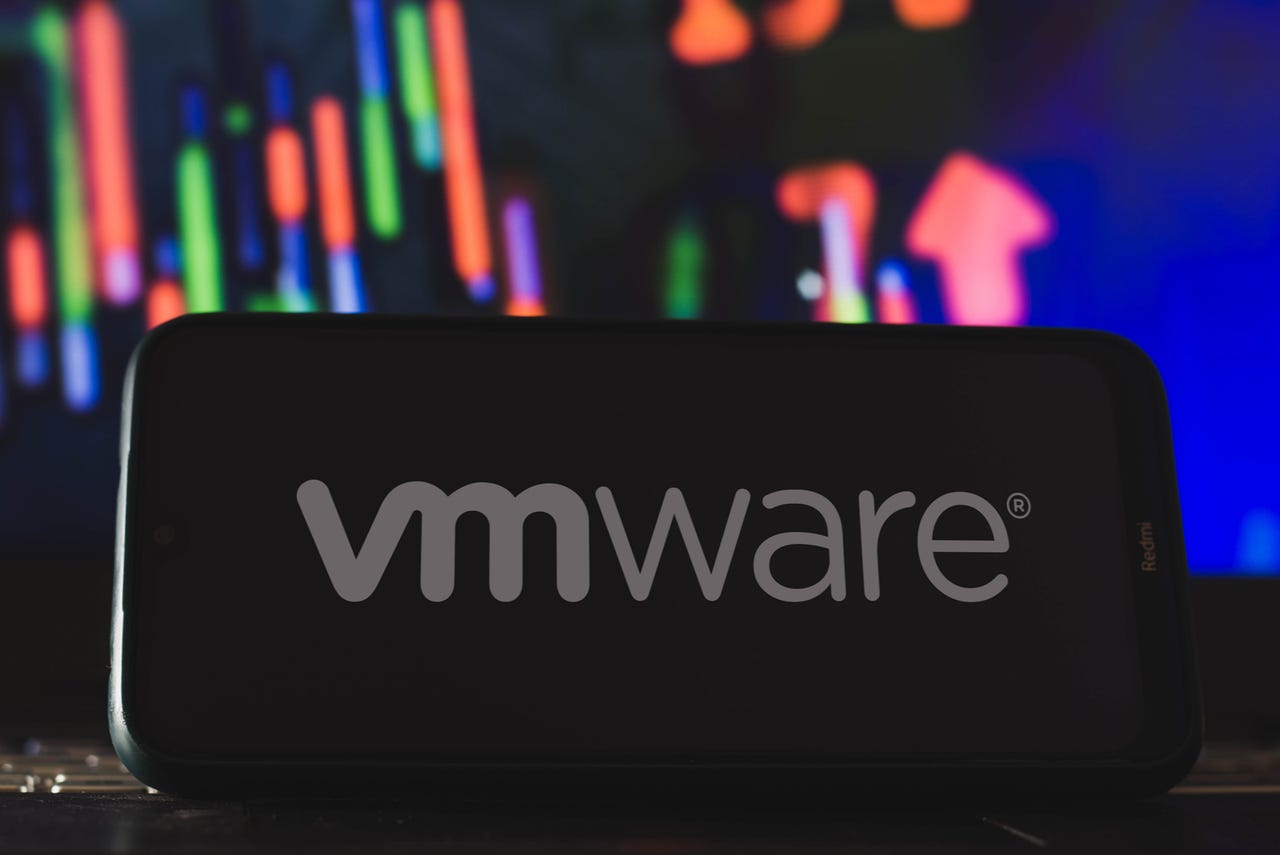[ad_1]

Enterprise blockchain should still be in experimental mode, however it could quickly change the best way functions and techniques are designed, shifting from an structure maintained by particular person organizations to architectures through which functions and knowledge are shared and secured throughout a number of entities — in essence, a really decentralized type of computing.
There are numerous cloud service providers on the market, however much more company data centers. Do all these knowledge facilities — with numerous quantities of underused compute energy — signify an untapped reservoir of cloud compute energy that might flatten out the cloud ecosystem?
Thar’s the phrase from Kit Colbert, chief know-how officer for VMware, who sees a future that’s much more decentralized than at the moment. I lately had the chance to sit down down with Colbert at VMware’s current Discover convention in San Francisco final week, the place he described the components which might be opening up enterprise computing.
Additionally: VMware looks to tap growing APAC need for multi-cloud management
A state of affairs that’s rising is functions constructed round blockchain or distributed ledger applied sciences, with their capability to allow belief amongst a number of individuals, Colbert mentioned. “Enterprise blockchain may be very nicely aligned with the place we’re going,” he mentioned.
At present’s emphasis is on distributed functions which might be constructed and run with native cloud or Kubernetes-based constructing blocks. Nevertheless, the momentum is now shifting away from distributed and constructing towards decentralized environments, he identified. Distributed architectures are supported by a single entity, however decentralized architectures are supported throughout a number of organizations.
Whereas each architectures assist a number of cases of functions and a shared database, “the large distinction is that in a decentralized structure, totally different corporations will likely be working a few of these cases, versus being operated by a single group,” he defined.
Which means these organizations “in all probability will not absolutely belief one another,” Colbert continued. “That is the place blockchain is available in, to assist that type of use case.”
Whereas blockchain-based decentralized techniques nonetheless signify a small fraction of VMware’s choices, Colbert mentioned he expects this to extend because the know-how develops.
Cloud computing itself is a combined bag, and can stay that means. Whereas public cloud computing represents a lot of the longer term for a lot of IT plans, there’s nonetheless a spot for on-premises environments, Colbert mentioned.
“Even when an organization is born within the cloud, or strikes to the cloud, we do see a number of instances the place they transfer stuff again. Oftentimes you discover that for price, compliance, safety, locality, or sovereignty, it’s possible you’ll wish to maintain issues on-prem. Placing all the pieces within the public cloud is just not the precise approach to go, conserving all the pieces on-prem is just not the precise approach to go. As a substitute the best way to be good about it’s to say, ‘OK, what are the necessities of the app, and the place finest to run to fulfill all these necessities?'”
Additionally: Nvidia, Dell, VMware add AI, zero-trust security into data center package
From a knowledge heart perspective, applied sciences are actually in place to assist gridlike cloud sources, making use of not solely cloud supplier sources, however shared personal knowledge heart capabilities provided in an open spot market as nicely — a type of Airbnb of compute capability. This contains the power to “run a digital machine that may be protected against being accessed by an administrator,” Colbert mentioned. “We will cryptographically implement that, which we could not do a couple of years in the past, due to core modifications in processors.”
VMware as soon as piloted a “cloud alternate” through which unused capability inside corporations’ knowledge facilities might be bought in an open market. The venture was a studying expertise for the corporate, and helped determine potential points, Colbert mentioned.
Performed amongst VMware’s cloud supplier and platform companions, the primary difficulty encountered in the course of the pilot was safety — shifting knowledge to unknown places. “We can not probably write any knowledge unencrypted to a tough drive that’s owned by one other buyer,” Colbert mentioned. “That may be a crimson line — we now have to have encryption. We additionally need to have a way of stopping the operator from getting entry into the digital machine or its knowledge, both at runtime or at relaxation.”
Additionally: The best encryption software: Protect your data
Assuring safety additionally introduces “legal responsibility points for buyer operators,” he continued. “They don’t seem to be going to wish to signal indemnity clauses, and a complete bunch of authorized and different issues we might get caught up on as nicely.”
Colbert additionally talked concerning the altering function of his occupation, the chief technology officer, which regularly overlaps with that of chief data and chief digital officers. “CTO is without doubt one of the least well-defined roles within the business,” he mentioned. “It may be a VP of engineering, a brilliant gross sales engineer, an outbound-type individual, an evangelist, or product chief … otherwise you will be extra of a person contributor, extra like an influencer, an architect kind.”
Colbert oversees innovation, ESG, in addition to core platforms and providers that assist the seller’s enterprise items. “As well as, I present the general technical technique for the corporate: ‘Here is the place we as an organization needs to be going, and listed below are the big-picture issues we needs to be doing as an organization.'”
[ad_2]
Source link

